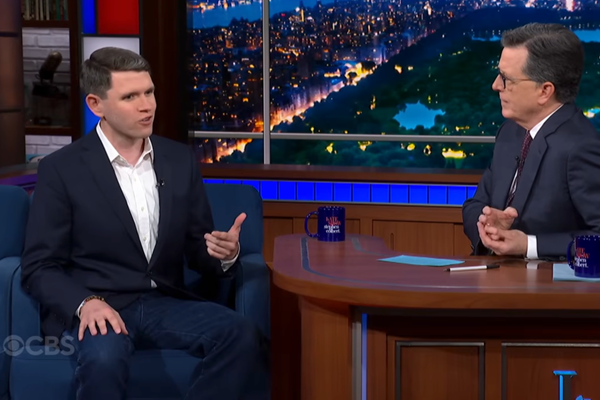Media Mergers and the New McCarthyism
Jane Fonda, Anna Gomez, John Oliver and the growing backlash against censorship and consolidation
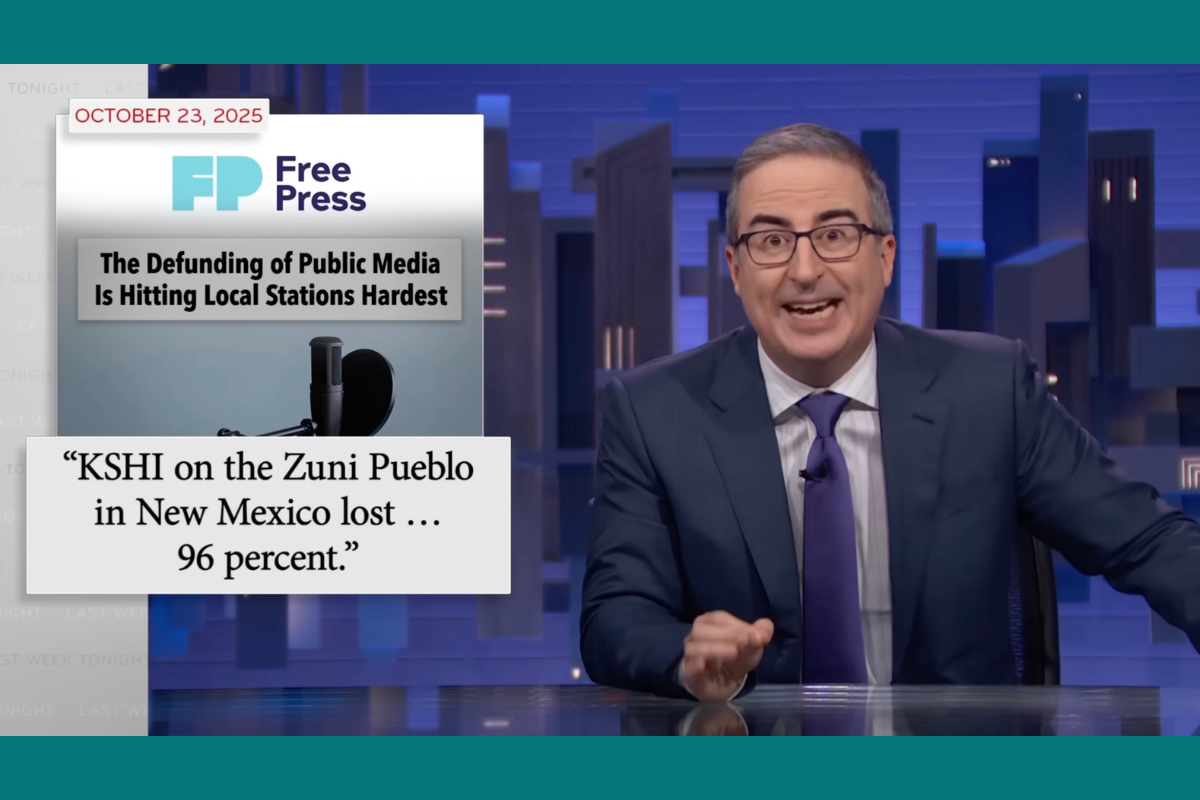
Free speech is facing its most serious threats in this country since the Red Scare, with relentless censorship and a daily barrage of shakedowns targeting activists, dissidents, journalists, politicians — and an unexpected number of late-night comedians.
At the same time, the nation’s biggest media companies are going on a shopping spree, pushing for previously unthinkable mergers that could give a handful of Trump cronies unprecedented control of U.S. newsrooms and movie studios.
First, Larry Ellison’s Skydance came for CBS/Paramount; now it’s eyeing Warner Bros. Discovery (owners of HBO and CNN). But a Comcast-Saudi partnership could outbid them. Meanwhile, local-TV giant Nexstar covets Tegna, and Sinclair is sniffing around Scripps.
Under Trump, deal-making happens through demonstrations of loyalty to the regime: First, you deep-six your diversity programs; next, you sacrifice a few critics; then you sweeten the deal with a straight-up bribe in the form of an absurd legal settlement or movie deal for the despot’s wife. That’s the cost of doing business — or so they say.
The cost to our democracy, of course, is much higher. Like the government, the media require checks and balances to function properly. Multiple outlets pursuing stories and competing for scoops creates accountability. Multiple owners make it harder to keep any single mogul under your thumb.
That’s why anyone concerned about free speech and repression should be worried about corporate media capitulation and consolidation, too.
Hooray for Hollywood
Fortunately, activists are beginning to connect the dots. In the wake of the Jimmy Kimmel fiasco, legendary activist and actor Jane Fonda revived the Committee for the First Amendment — an alliance of actors, directors and screenwriters that her father Henry was an early member of during the fight against McCarthyism.
Last week, my Free Press colleague Jessica J. González and FCC Commissioner Anna Gomez joined Fonda to discuss the administration’s attacks on free expression and the takeover of the news media by Trump confederates. They described the ways the regime is abusing its power over pending media mergers to censor Trump’s critics and reward his allies. And they unpacked what this strategy means for journalists and creatives: job cuts, diminished diversity of thought and experience — and real fear about speaking out.
You can watch the discussion here:
Free speech on tour
As the lone dissenting FCC commissioner, Gomez herself has become a stalwart advocate for free speech and the rule of law. Even as the Trump regime moves to illegally fire her contemporaries at other independent agencies, she continues to speak out. She says the First Amendment “marks the line between freedom and oppression, and we must defend it without compromise.”
Gomez has taken her First Amendment listening tour across the country, including a powerful event Free Press organized in Los Angeles in May. “I became alarmed by the campaign of control and censorship that I saw this administration embarking on,” she said. “So I embarked on this tour both to inform and to encourage people to stand up and speak out.”
Last week, Free Press hosted the 20th stop on the tour at Rutgers University Law School in Camden, New Jersey. González moderated an engrossing panel with New Jersey journalists, activists and funders from the New Jersey Civic Information Consortium.
“What I have heard today was the importance of independent media, public media and local journalism,” Gomez said in Camden. “We want community members engaged in their communities, and we lose that when we lose local control of our local media.”
We recorded the entire event, and you can watch it here:
HBO does public media
Trump, of course, isn’t just going after corporate media. He’s defunded the Corporation for Public Broadcasting (CPB) — a devastating move that has endangered hundreds of local stations and thousands of journalists. On Sunday night, HBO’s John Oliver devoted his season finale to public media’s plight.
Come for the Bob Ross jokes, stay for the powerful stories of how essential public media is to local communities when they face disasters or just want a trusted voice to tell them what’s happening down the street.
I worked behind the scenes with Oliver’s producers to inform the segment, and you’ll catch a glimpse of the Free Press blog in the section examining which stations are most at risk of shutting down.
“In a universe where a competent, effective government were in place, we’d ideally work on a long-term fix for the way CPB is funded,” Oliver concluded. “And instead of giving Congress the power to take its money away every two years, we’d institute some kind of tax or licensing fee that could reliably fund it.… Sadly, we do not live in that universe right now.”
So Oliver’s team set up an auction of artifacts from his show — the proceeds of which will provide emergency funding for public-media stations.
Just saying, but if anyone’s looking for a gift to celebrate my 21st anniversary at Free Press this week, bidding is open for this giant Reese’s mug used in multiple Oliver shows covering our issues.
Laughter, solidarity and a new democracy
Oliver’s show is a shining and hilarious example of how comedians and creatives can illuminate issues and call out corruption by just doing what they do best. Tapping into these kinds of talents will be essential to defending free speech and defeating Trump. Laughter is a weapon against tyranny.
So is solidarity. If the free-speech defenders, antitrust advocates and media-justice seekers can see their common cause, if the journalists and filmmakers will stand with dissidents and immigrants, we can stop the destruction of our media and the shredding of our Constitution.
Sinking these mega-mergers in Hollywood and broadcasting is a winnable fight, even in this challenging political climate. If we can bring public pressure to scrutinize and even derail these deals, we can use the momentum to call out government censorship, protect the right to dissent and push for a media system that actually serves local communities.
“All of the experts that we’ve talked to and that we’ve had on our webinars on authoritarianism have said one thing in common — well, many things in common — but one is we can’t just be against,” Jane Fonda said last week. “We have to put out there in the ether and to the public what we’re for — what kind of future we’re fighting for. We’re not going back. Because back was really bad for a whole lot of people. We’re going forward to a better democracy, a new democracy.”
Passages
Jennifer Brandel wrote a beautiful tribute to Jessica Clark, my longtime friend and colleague, who died in October. I first worked with Jessica nearly 25 years ago at In These Times in Chicago. And I was conspiring with her just a few weeks ago in New Orleans about reimagining journalism’s future and how to turn the destruction of public broadcasting into something better. That job will be a lot harder without her brilliant insights and reliable allyship.
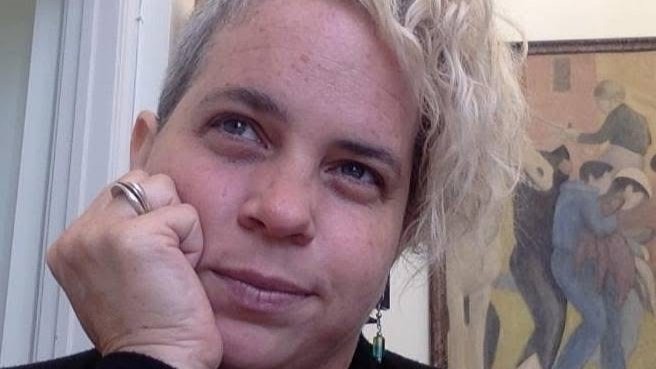
Media Impact Funders also published a tribute to Clark’s work and approach. As they wrote: “Her intellect, generosity and playfulness will be deeply missed — but her influence will continue to guide us.”
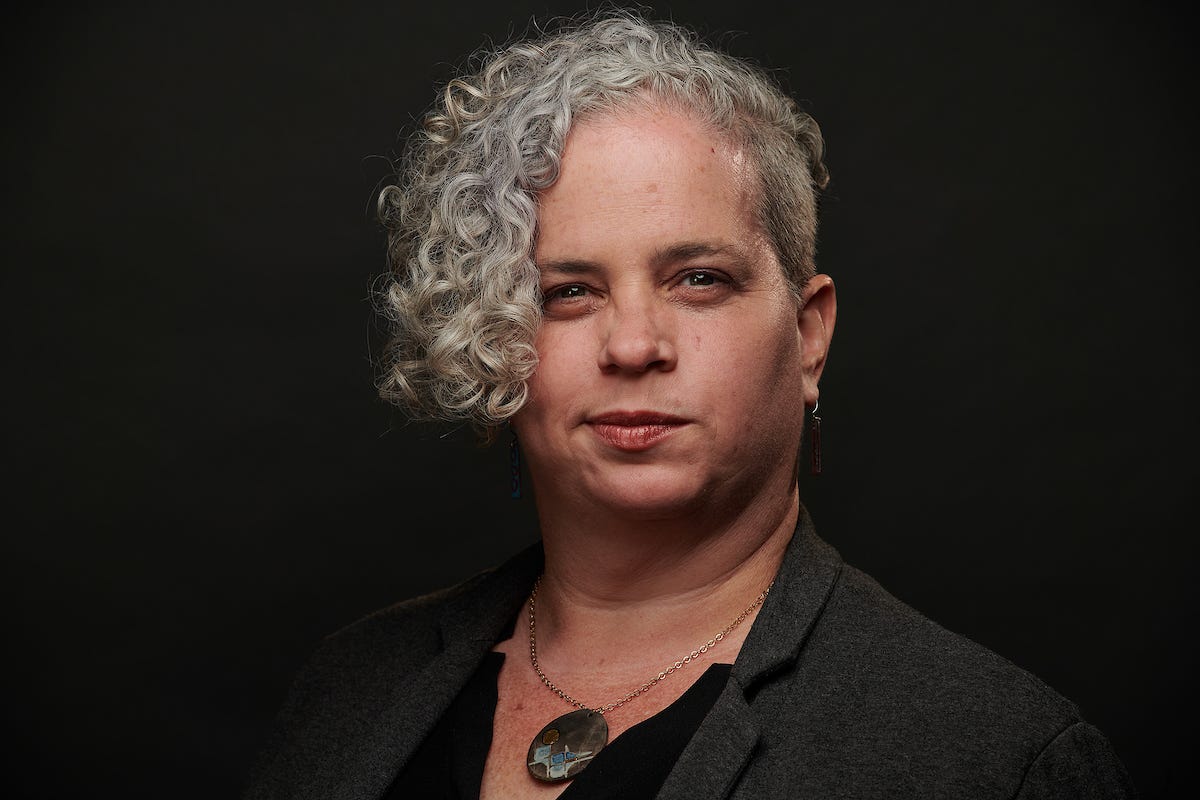
I was also very sad to learn about the passing of Alice Wong, the Bay Area disability-rights activist and writer. Alice was also a strong advocate for Net Neutrality and affordable internet access. “I did not ever imagine I would live to this age and end up a writer, editor, activist, and more,” she wrote in a note that she asked to be shared on social media after her death. “As a kid riddled with insecurity and internalized ableism, I could not see a path forward. It was thanks to friendships and some great teachers who believed in me that I was able to fight my way out of miserable situations into a place where I finally felt comfortable in my skin. We need more stories about us and our culture.”
Teamwork
Free Press Action’s Mike Rispoli testified in Trenton yesterday about the future of public media in New Jersey. In September, NJ PBS — the state’s only public-television station — announced that it will cease operations in 2026. The move is related to Congress’ decision earlier this year to claw back $1.1 billion in funding from the previously approved federal budget for the Corporation for Public Broadcasting.

But New Jersey is also home to the Civic Information Consortium — the innovative public-grantmaking program Free Press Action helped create. As Rispoli testified, the public-media crisis may be an opportunity to build a forward-looking public-media system focused on community needs.
“This is a moment to be bold,” he said. “I urge this committee and policymakers to think expansively about what comes next, including how public broadcasting can be paired with public grantmaking to build a 21st-century public-media system that meets the needs of residents today. I encourage you all to take a holistic approach and invest in a more expansive vision of what public media is, what it does, and who it is for.”
The Hispanic Public Relations Association named Pressing Issues’ own Julio Ricardo Varela “Journalist of the Year” at a ceremony in Chicago last week, in tribute to his work as founder of Latino Rebels and The Latino Newsletter, his leadership of Futuro Media, and his writing for MSNBC and other outlets. Around here, we’re counting this as our first Pressing Issues award. Congrats, Julio!
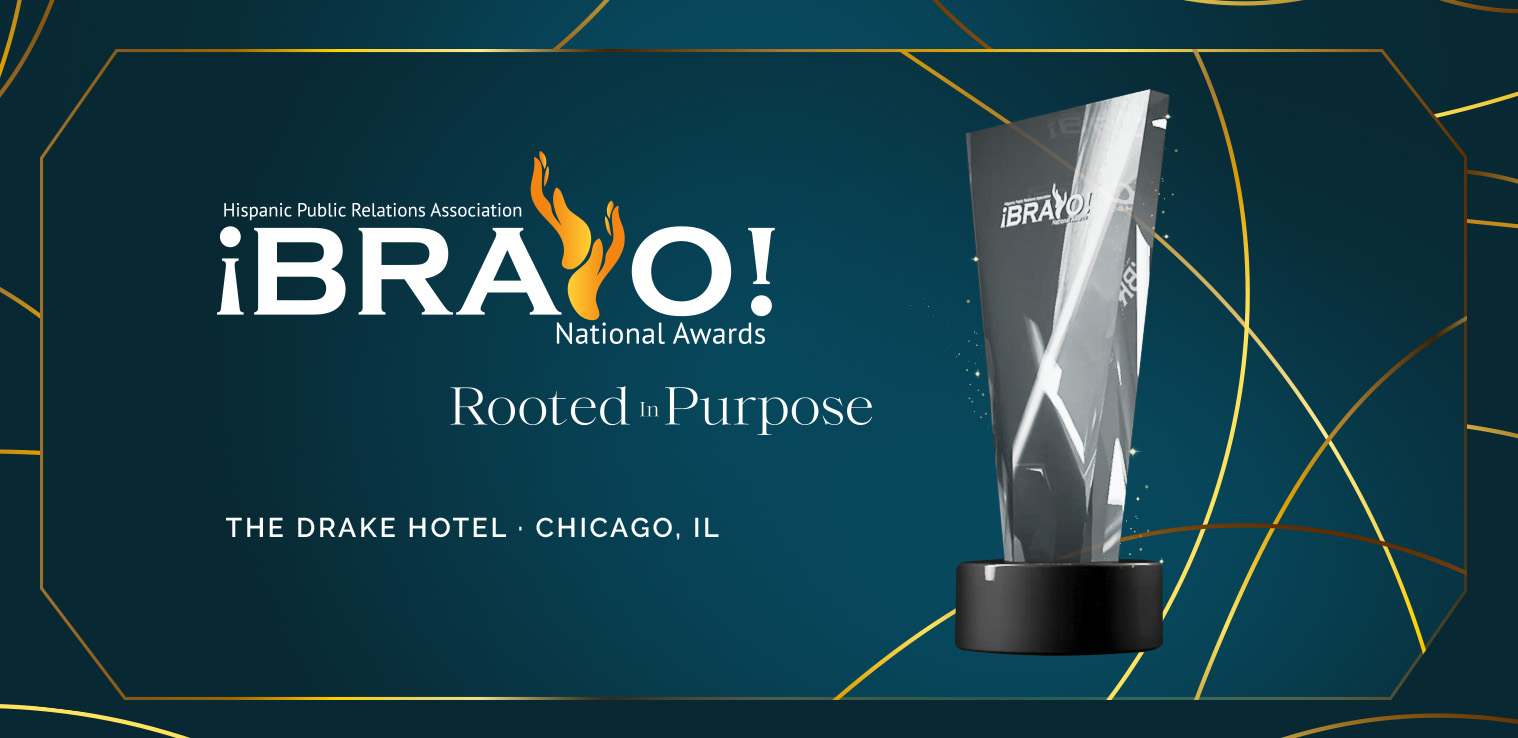
The kicker
“To those who profit from our work while threatening the livelihoods of everyday working people, bowing to government censorship, and cowering to brute intimidation: we see you and history will not forget. This will not be the last you hear from us.” — The Committee for the First Amendment
About the author
Craig Aaron is the co-CEO of Free Press and Free Press Action and a guy with two first names. Follow him on Bluesky.
